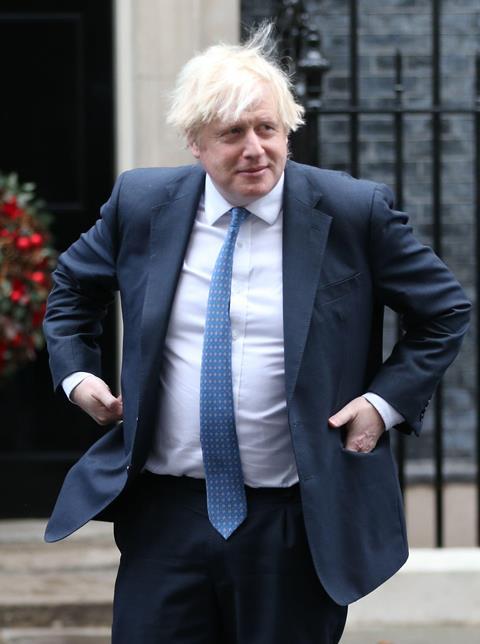Downing Street is planning curbs on judicial review going above and beyond those in legislation currently going through parliament, according to press reports this morning. Quoting 'Whitehall sources', The Times says that Boris Johnson is unhappy with the Judicial Review and Courts Bill and has ordered the justice secretary to toughen plans to restrict judges’ powers to rule on the legality of ministerial decisions.

One option, drawn up by lord chancellor Dominic Raab and Suella Braverman, the attorney-general, is for MPs to pass an annual 'Interpretation Bill' to strike out findings from JRs with which the government does not agree. According to the newspaper, Whitehall sources argue that the bills would reinforce the constitutional principle that parliament is sovereign over the unelected judiciary. However the proposal has already attracted fierce criticism from the legal profession.
Meanwhile, in an interview with Times Radio yesterday, Raab said that he wanted to overhaul the Human Rights Act to 'correct' the balance between freedom of speech and privacy. He was speaking after The Mail on Sunday lost its appeal in the privacy case brought by the Duchess of Sussex over the publication of a letter she had sent her father.
Pledging to prioritise free speech over privacy, Raab said: 'I think the drift towards continental-style privacy laws, innovated in the courtroom, not by elected lawmakers in the House of Commons, is something that we can and should correct.'
Law Society president I. Stephanie Boyce said: 'British democracy is founded on the principles that legislation is passed by parliament and that an independent judiciary interprets the rules. This makes sure government has to answer for its actions just like the rest of us. If the government wants to avoid losing court cases, it should ensure decisions are made within the law of the land.
'This sounds like the government wants to retrofit the law to its bad decisions. Something so vital to the character of our nation and our standing in the world should not be debated via lobby briefing and anonymous "Whitehall sources".'
Twitter reacts
Obviously we need to see the detail. But at least 2 points of concern (1) The confrontational tone. Why does it need to be a “war” with judges? An “annual corrective act” sets up *in advance* the idea that the government will disagree with & reverse as-yet unseen judgments... https://t.co/gIYkk8jT4C
— Jonathan Jones (@SirJJQC) December 6, 2021
If “finding” means “a ruling about what the law is” and “strike out” means “change the law” than that is not exactly revolutionary. If judges rule that legislation means “X” but Parliament doesn’t like X, then Parliament can change the law. (This happens all the time in tax law.)
— George Peretz QC (@GeorgePeretzQC) December 6, 2021
The headline in this story does not actually match the text.
— The Secret Barrister (@BarristerSecret) December 6, 2021
The proposal seems to be for MPs to legislate to prospectively change laws if they disagree with court interpretations (which is in principle unobjectionable), rather than retrospectively overturning judicial rulings. pic.twitter.com/aN7DyceTMO
The rule of law is the last defence against unaccountable political power, as we have seen during Brexit and the Coronavirus pandemic. And that's exactly why the Johnson Government is coming next for judicial review and the Human Rights Act. None of this is normal. pic.twitter.com/dM5kMTANMH
— Hardeep Matharu (@Hardeep_Matharu) December 5, 2021
Nothing wrong constitutionally with parliament legislating if it wants to reverse court judgments. But the judgments that upset this government are not about interpretations of the law, they are about its own wrongdoing. https://t.co/zUa5JP0wWt
— Adam Wagner (@AdamWagner1) December 6, 2021





























32 Readers' comments